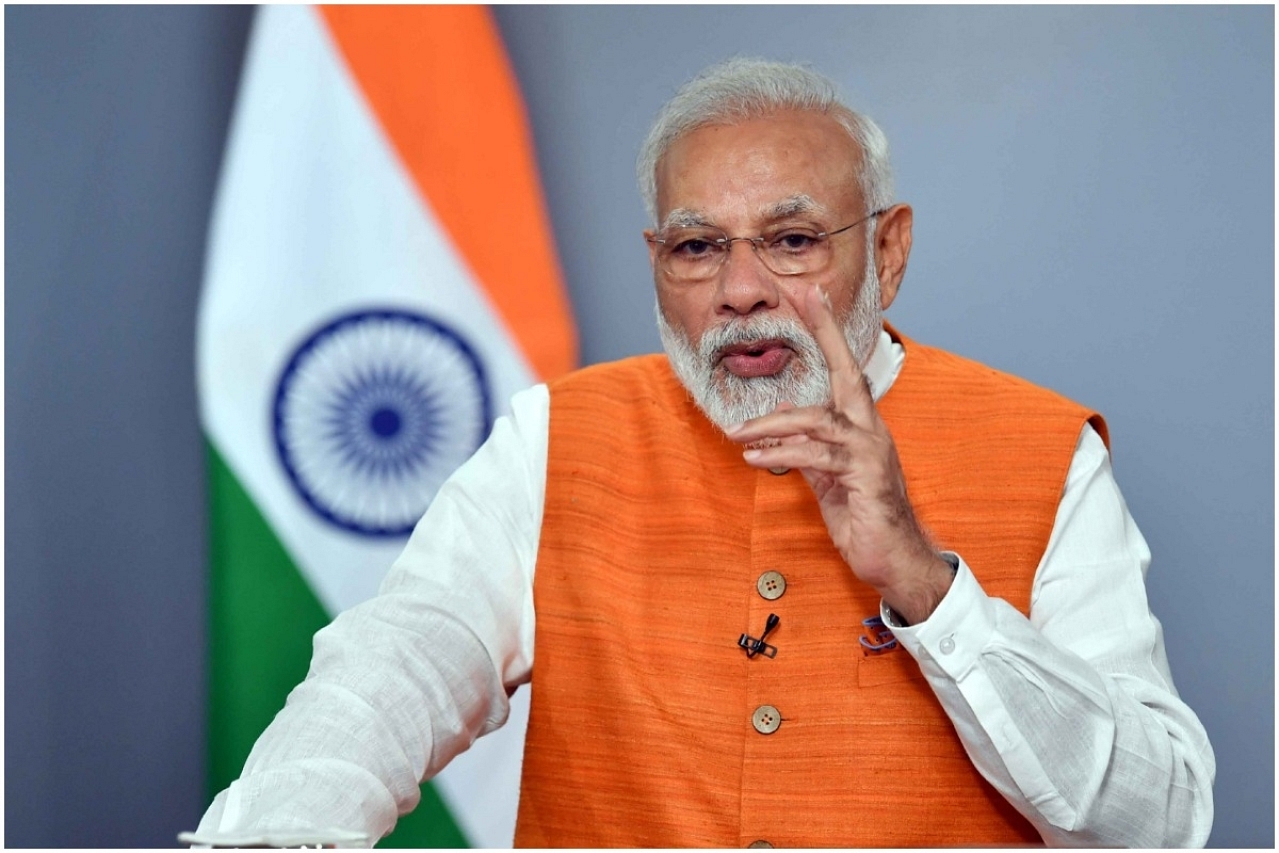News Brief
PM Modi Chairs Key Meeting Over Future Of Cryptocurrency In India: Here's What You Should Know
- Media sources claim the government will continue to engage aggressively with experts and other stakeholders, adding that because the issue transcends geographical borders, global alliances and collaborative measures are expected.

Prime Minister Narendra Modi.
Prime Minister Narendra Modi chaired a meeting on 13 November on the future of cryptocurrencies, amid rising concerns over its potential for money laundering and terror financing.
According to two people familiar with the matter, there was a consensus at the discussion that the government should not create any private digital currency because legal money and uncontrolled cryptocurrencies have put naive Indians at risk of financial harm.
Attempts to deceive the youth through over-promising and non-transparent advertising were vigorously opposed at the meeting, according to the sources, implying that tough regulatory action is on the way.
According to a report, a government source said: "The government is cognizant of the fact that this is an evolving technology, it will keep a close watch and take proactive steps.”
“There was consensus also that the steps taken in this field by the government will be progressive and forward-looking," the source added.
Sources noted that the government will continue to engage aggressively with experts and other stakeholders, adding that because the issue transcends geographical borders, global alliances and collaborative measures are expected.
As reported by Mint, the source stated that “it was also an outcome of a consultative process as Reserve Bank of India, Finance Ministry, and Home Ministry had done an elaborate exercise on it as well as consulted experts from across the country and the world.”
Additionally, the source said: “Global examples and best practices were also looked at.”
Hindustan Times reported that according to a person familiar with the situation, while the RBI is open to employing cryptocurrency technology, it is opposed to declaring them legal tender because these currencies are highly volatile and pose a risk to financial stability.
The source also said: “Most of the government departments concur with RBI, but they are under pressure from various lobby groups who want a status quo. A final view will, however, be taken by the top leadership.”
The key meeting comes just two days after RBI Governor Shaktikanta Das issued a warning about cryptocurrencies, cautioning investors about the risks of investing in virtual currencies.
RBI has frequently stated that cryptocurrencies constitute a major threat to the country's macroeconomic and financial stability and that the number of investors trading on them, as well as their purported market value, are both doubtful.
Meanwhile, latest reports claimed that a parliamentary committee on finance is planning a meeting of prominent crypto industry stakeholders on 15 November. Participants from prominent crypto exchanges, members of the Blockchain and Crypto Assets Council (BACC), and others are expected to attend the closed-door meeting.
Cryptocurrency In India
In India, cryptocurrency is not legally banned. Earlier, the Central government had stated that it will be regulated and that the Centre is working with various parties.
The Union Finance Minister, Nirmala Sitharaman, also stated that “we are not saying no to cryptocurrency. We are saying we’ll have to see how this technology can help fintech maximise the potential that it has”.
“But how sophisticated regulation can be is something which I want to work with the Reserve Bank. I can say the work is nearly complete. It is now for the cabinet to go into it,” she added, as reported by Economic Times.
Similarly in March this year, the then Union minister of state for finance, Anurag Thakur, stated that the government will be extra cautious when making decisions about cryptocurrencies because they are very volatile and could have security implications.
The government, on the other hand, may embrace virtual currency blockchain technology, he noted.
However, the RBI circular banning cryptocurrency was declared null and void by the Supreme Court in early March 2020. Following this, on 5 February 2021, the central bank established an internal panel to develop a digital currency paradigm.
The RBI declared its intention to create an official digital currency in response to the proliferation of cryptocurrencies such as Bitcoin, which the central bank has expressed worry over.
Support Swarajya's 50 Ground Reports Project & Sponsor A Story
Every general election Swarajya does a 50 ground reports project.
Aimed only at serious readers and those who appreciate the nuances of political undercurrents, the project provides a sense of India's electoral landscape. As you know, these reports are produced after considerable investment of travel, time and effort on the ground.
This time too we've kicked off the project in style and have covered over 30 constituencies already. If you're someone who appreciates such work and have enjoyed our coverage please consider sponsoring a ground report for just Rs 2999 to Rs 19,999 - it goes a long way in helping us produce more quality reportage.
You can also back this project by becoming a subscriber for as little as Rs 999 - so do click on this links and choose a plan that suits you and back us.
Click below to contribute.
Latest